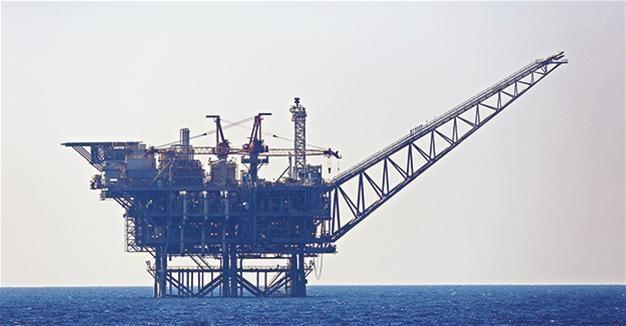East Med offers huge opportunities in energy: Leading US expert
Merve Erdil - ISTANBUL

AFP photo
There are huge energy opportunities in the Eastern Mediterranean that will create huge benefits for many countries, said Richard L. Morningstar, the founding director and chairman of the Global Energy Center at the Atlantic Council and the secretary of state’s former special envoy for Eurasian energy.
Morningstar said he did not know of another situation with so many opportunities that would benefit so many countries yet also have so many political difficulties.
“So to take advantage of those opportunities is a good thing. That is not to say there will be an agreement on projects; there certainly won’t be one tomorrow. But it is a start and I think it creates real opportunities,” added the former U.S. ambassador to Azerbaijan.
The former envoy also touched on possible energy cooperation between Israel and Turkey.
“It is hard for me to comment on a specific project but obviously it is very positive that Israel and Turkey have been able to reconcile and renew a positive relationship. I think that it is very significant that [Israel’s Energy Minister Yuval] Steinitz came to Turkey. First visit of high level Israeli official, since Turkey and Israel agreed to resume relations. Certainly it opens up the possibilities for cooperation between Turkey and Israel, in the gas area with respect to East Med gas. This is something that Turkish companies have always been interested in but have had their hands tied because of what had been the unfortunate relationship between Israel and Turkey. So this is a good thing. There is some optimism with respect to a reunification agreement with respect to Cyprus that also opens up possibilities. I think there are huge opportunities in the Eastern Mediterranean,” he said.
Asked whether the U.S. had less interest in the Middle East region politically and economically after its shale gas revolution started, Morningstar said the U.S. would not go away.
“We are always going to have strong relationships with certain countries. And we want to help create a region with less conflict. So I don’t see the United States going away. Obviously we will see what effect the election will have,” he said.
Hilary Clinton is likely to win the presidential race, he said, adding that she feels very strongly about European energy security, developing alternative sources of energy and moving toward a greener economy.
“All of these things are going to require global cooperation that we need to be a part of,” he added.
Turkish Stream project
Touching on the Turkish Stream project, Morningstar said the project was a long way from being realized due to the characteristics of pipeline project making.
“I can’t speak for what the official U.S. position is. I no longer work for the government. I can tell you my opinion. Turkish Stream is not a new project, it had been agreed to before, then it broke apart when Russia and Turkey had their serious issues, and now it’s back again. Prior to Turkish Stream there was South Stream; ultimately, it was cancelled. I have a couple of points to presume: First, I don’t think it will have an effect on the Southern Corridor as it exists today. The Shah Deniz project is going forward, TANAP and TAP are going forward, I don’t think there is any question that 16 billion cubic meters (bcm) will go from Shah Deniz –6 bcm to Turkey and 10 to Europe – that will happen. The relationship between Turkey and Azerbaijan is strong. I don’t think Turkey would do anything that would jeopardize TANAP and the Shah Deniz project. One, because I think Turkey wants the gas from the Caspian and second, Turkey would not jeopardize its relationship with Azerbaijan. So I do feel very strongly that Southern Corridor will happen.
Whether it will have an effect on future gas, beyond the 16 bcm, it is too early to tell. With respect to the project itself, there are two pipelines that have been the subject of the agreement; the first pipeline would simply replace gas that is already coming to Turkey. So that certainly doesn’t create an issue for the Southern Corridor, it is basically the same gas. The second pipeline could then ship gas on to Europe. There are several aspects to look at: Just because the agreement was signed, doesn’t mean it will happen. Pipelines are proposed, sometimes they happen, and sometimes they don’t happen. There are technical issues, there may be financing issues and the like. There are also potentially political and legal issues particularly with Europe. The gas certainly once it gets to Europe has to satisfy the third energy package. There are potentially competition issues. So all of these things could create questions as to whether or not the pipeline will happen. The bottom line is there is a long way from here to there,” he said.
